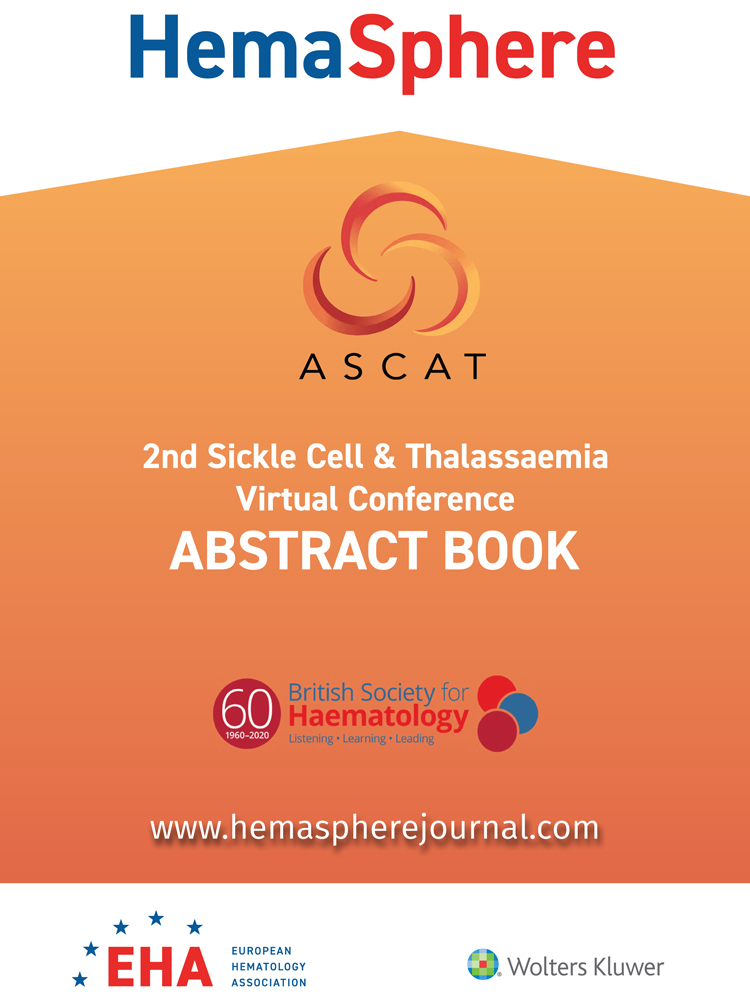P129: NARRATING SICKLE CELL DISEASE: THE EXPERIENCES OF PATIENTS AND CARGIVERS
Aims: SCAN (Sickle Cell Anemia Narrations) is a project aimed to collect narratives of patients with sickle cell disease (SCD) and their family members, to gain insight on living with SCD. Italian SCD population is multicultural, melting endemic patients of Caucasian descent and subjects of African descent as first or second-generation Italian citizen.
Methods: The research was carried in Italy between January-September 2021 and involved two patients’ associations and seven comprehensive sickle cell centers. Illness plots for patients with SCD and family members, together with a sociodemographic survey, were collected online through the project's website. In-depth interviews were also conducted. Narratives were analyzed through narrative-based medicine classifications, NVivo software, and interpretative coding.
Results: Twenty-two patients with SCD (53% Caucasian, 33% African, 14% other) and ten family members participated in the survey. The patient's care pathway in 44% of the cases was described as difficult at the beginning but in the present was considered satisfactory. Misdiagnose of SCD was reported in 33% of patients’ narratives, and their caregivers remarked the overall lack of empathy in communication of the diagnosis. Transitional care was described as positive in 17% of the cases. Although in 41% of the cases family members were described by patients as supportive, in the other cases difficult family situations were reported. Caregivers confirmed the difficulties encountered in managing the care pathway and the lack of coordination between comprehensive SCD centers and general practitioners. Lack of knowledge about SCD, even among health professionals, was remarked by 56% of the respondents. Weakness (53%), and pain in the limbs and hips (41%) impact patients’ quality of life. Acceptance of SCD was the main coping element (79%). Patients’ absence from job showed an average of 39 days per year due to the illness related to SCD. When stimulated about future expectations, patients indicated less pain (30%) and more efficient cures (20%) as still unmet needs.
Conclusion: SCAN is the first project on narratives from patients with SCD. Our findings highlight the SCD disease burden for both patients and caregivers. We also identify the need to increase disease awareness and to activate/improve services such as psychological/anthropologic support and transitional care.
References
1. SLF Freitas et al, Quality of life in adults with sickle cell disease: an integrative review of the literature Rev Bras Enferm. 2018 Jan-Feb; 71(1):195–205
2. Pelandri F et al, Life for patients with myelofibrosis: the physical, emotional and financial impact, collected using narrative medicine-Results from the Italian ‘Back to Life’ project Qual Life Res 2018; (6):1545–1554
3. Kato GJ et al, Sickle Cell disease Nat Rev dis Primers 2018; Mar 15;4:18010
4. Ragusa L et al, Caring and living with Prader-Willi syndrome in Italy: integrating children, adults and parents’ experiences through a multicentre narrative medicine research Bmj Open 2020; 10(8):e036502
5. Charon R, The patient-physician relationship. Narrative Medicine: a model for empathy, reflection, profession, and trust JAMA 2001; 286(15):1897–1902
6. Fioretti C et al, Research studies on patients’ illness experience using the narrative medicine approach: a systematic review BMJ Open 2016; 6(7):e011220
7. Greenhalgh T et al, Narrative based medicine: why study narrative? BMJ 1999; 318(7175):48–50
8. Marini MG. Languages of Care in Narrative Medicine. Words, Space and Time in the Healthcare Ecosystem. Springer International Publishing; 2019.
9. Midena E et al, Real-life patient journey in neovascular age-related macular degeneration: a narrative medicine analysis in the Italian setting. Eye 2021 doi:10.1038/s41433-021-01470-9
10. Tonini MC et al, Narrative medicine to integrate patients’, caregivers’ and clinicians’ migraine experiences: the DRONE multicentre project. Neurol Sci. 2021; 15:1–12.




